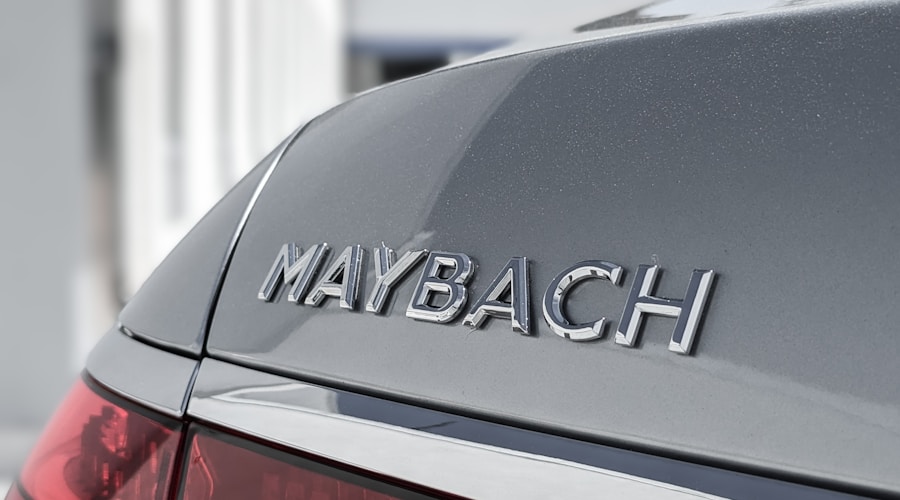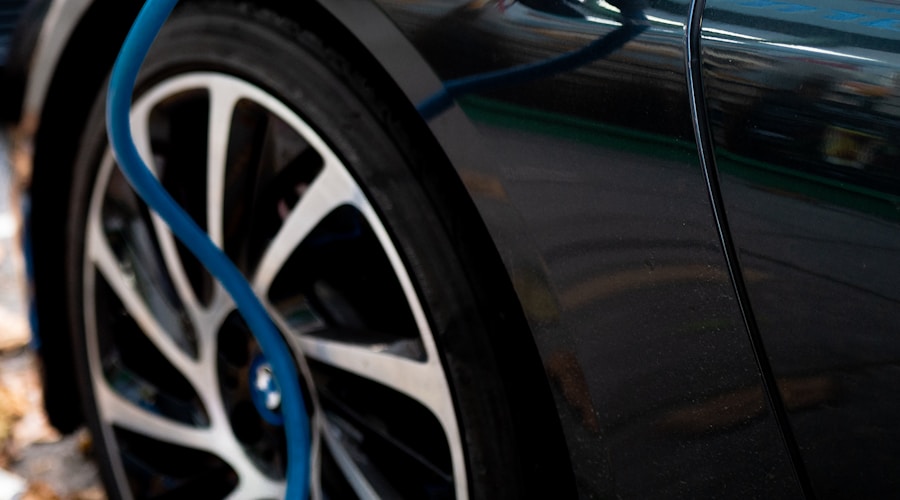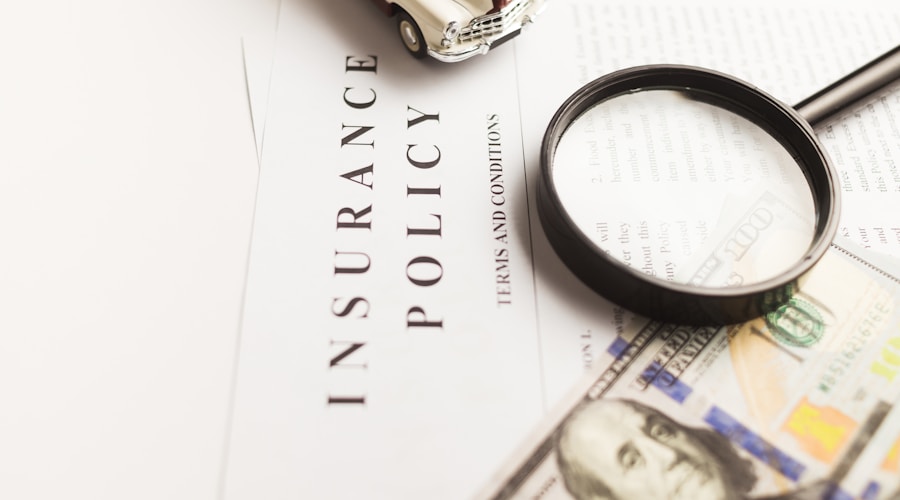Are you in the market for a new car but unsure whether to buy or lease? It's a big decision with long-term financial implications. It's essential to carefully consider your options and understand how each choice can impact your overall financial wellbeing. By the end of this article, you will have a clearer understanding of the key factors to consider when deciding between buying and leasing a car.
According to financial expert Dave Ramsey, "The choice between buying and leasing is about more than just the numbers - it's about your lifestyle and priorities."1 That's why it's crucial to evaluate not only the financial aspects but also how each option aligns with your personal preferences and goals.
In the following sections, we will explore the basics of both buying and leasing a car, calculate the costs associated with each option, examine the long-term financial impact, consider how your lifestyle may factor into the decision, and provide tips and advice for making the final choice. Whether you're a first-time car buyer or looking to upgrade your current vehicle, understanding the pros and cons of buying versus leasing will help you make a well-informed decision that suits your needs and financial situation.
Understanding the Basics of Buying a Car
When you buy a car, you're making a long-term investment. You own the vehicle, and once you've paid off the loan, it's yours to keep. This gives you the freedom to customize and modify the car to your liking. Plus, there are no mileage restrictions, so you can drive as much as you want without worrying about additional fees.
Purchasing a car also means that eventually, you won't have any more payments. Your money will begin to stack up instead of getting spent on monthly leasing fees. According to an article in The Balance, "you’ll get used to that monthly car payment, and it is painful for a few years. But then the payment goes away, and the dollars start to stack up. So you have to think about that.”
However, when you buy a car, you're responsible for all maintenance and repairs once the warranty expires. This can be financially burdensome, especially if you purchase a used car that requires a lot of upkeep.
In summary, buying a car requires a larger initial financial outlay, but it can be more economical in the long run because eventually, you'll no longer have monthly payments and you'll own the car outright.
Understanding the Basics of Leasing a Car
Leasing a car is essentially a long-term rental agreement. When you lease a car, you're paying for the use of the vehicle over a specified period, usually two to four years, and you don't own the car at the end of the lease term.
One of the most appealing aspects of leasing a car is the lower monthly payment compared to purchasing a car. This is because you're only paying for the vehicle's depreciation during the lease term rather than the entire cost of the car. As a result, you may be able to afford a more luxurious or higher-priced vehicle than if you were buying it outright.
Additionally, because you're driving a newer car with a lease, you'll likely have lower maintenance costs since the vehicle is usually covered under warranty for the duration of the lease. This can save you money on repairs and upkeep.
However, it's crucial to understand that there are limitations and restrictions associated with leasing a car. You'll have specific mileage allowances, typically around 12,000 to 15,000 miles per year, and you may face penalties for exceeding these limits. You're also responsible for returning the car in good condition, and any excessive wear and tear may result in additional charges.
Overall, leasing can provide you with the benefit of driving a new car every few years without the commitment of ownership. However, it's essential to weigh the pros and cons carefully and consider your specific financial situation and driving habits before making a decision. As financial expert Dave Ramsey puts it, "Leasing a car can be a good option for some people, but it's not for everyone".

Calculating the Costs of Buying a Car
When you are considering buying a car, it's essential to understand the costs involved beyond the purchase price. First off, you must factor in the down payment, which is typically around 10-20% of the car's total price. Additionally, you'll need to consider the interest on the loan, insurance, and potential maintenance and repair costs. As financial advisor Dave Ramsey puts it, "The initial cost of buying a car is just the tip of the iceberg. You need to be prepared for the ongoing expenses as well".
Moreover, don't forget to account for the depreciation of the car. When you buy a car, you own an asset that diminishes in value over time. The average new car loses 20% of its value within the first year. This means that if you decide to sell your car after a few years, you might not recoup the initial amount you paid for it.
It's also worth considering the opportunity cost of buying a car. As financial expert Suze Orman advises, "Think about what else you could do with the money you are putting into a car. Could you be investing it, paying off debt, or saving for a significant life goal?" This simple calculation could offer a different perspective on the true cost of buying a car.
Ultimately, assessing the costs of buying a car requires looking beyond the sticker price and considering all the ongoing expenses and potential missed opportunities. By doing so, you can make a more informed decision about whether buying a car is the right financial move for you.
Calculating the Costs of Leasing a Car
Leasing a car may seem like an affordable option at first, but it's crucial to consider the long-term costs before making a decision. When calculating the costs of leasing a car, there are a few key factors to keep in mind.
First, you'll need to consider the monthly lease payments. These can vary based on the car's value, the lease term, and the down payment. It's essential to factor in these monthly expenses into your budget to ensure that you can afford the payments without straining your finances.
Next, you'll need to account for the mileage restrictions. Most lease agreements come with mileage limits, and if you exceed these limits, you'll be charged for every mile over the limit. Before signing a lease, it's important to estimate how much you typically drive in a year and ensure that the lease's mileage allowance aligns with your driving habits.
In addition to the monthly payments and mileage restrictions, you'll also need to consider the costs at the end of the lease term. When returning the leased car, you may be responsible for excessive wear and tear, which can result in additional charges. It's essential to carefully review the lease agreement to understand the potential end-of-lease costs fully.
Financial guru Dave Ramsey advises, "Leasing a car may seem attractive, but it's crucial to calculate the total costs to determine if it's the right choice for your finances."
Therefore, when considering leasing a car, don't just look at the monthly payments. Take into account the potential additional charges, such as excess mileage fees and end-of-lease costs, to make an informed decision that aligns with your financial goals.
Comparing the Long-Term Financial Impact
When you're deciding between buying and leasing a car, it's crucial to consider the long-term financial impact of each option. Buying a car means you'll eventually own it outright, and "you won't have payments forever," as financial expert Dave Ramsey points out. On the other hand, leasing a car may provide lower monthly payments, but you'll never own the vehicle, and you might find yourself continuously making payments without ever owning the car.
In the words of personal finance author, Suze Orman, "If you lease, you'll always have a car payment. If you own, you won't" . A car is not just a means of transportation but an asset that can contribute to your financial stability. By owning a car, you build equity and can eventually sell it or use it as a trade-in for a new vehicle, thus adding to your financial resources.
However, purchasing a car also means having to deal with depreciation. Cars lose value over time, with depreciation being most significant in the first few years of ownership. According to the experts at Edmunds, "a new car depreciates in value quickly, losing up to 20% of its value in the first year and up to 50% or more over the first three years" . This means that if you decide to sell the car, you may not get back the full amount you paid for it.
When you lease a car, you are essentially paying for the vehicle's depreciation for the time you use it. The leasing company estimates the vehicle's value at the end of the lease term and charges you for that amount. While you won't build equity, you also won't have to worry about selling the car or the depreciation affecting your finances directly.
Ultimately, the long-term financial impact of buying versus leasing comes down to whether you want to invest in a long-term asset or prefer the flexibility of lower monthly payments without the commitment of ownership.
How Your Lifestyle Affects Your Choice
When considering whether to buy or lease a car, it's crucial to take a close look at your lifestyle and how it may impact your decision. Your personal and professional life can greatly influence which option is more financially sensible for you.
If you have a stable job and don't anticipate major changes in your income or expenses, buying a car might be the better choice for you. As financial expert Suze Orman once said, "If you plan to keep a car for a long time, buy it." Owning a car gives you the freedom to use it as much as you want without worrying about mileage limitations or excess wear and tear fees.
On the other hand, if your job requires you to relocate frequently or if you enjoy driving different cars every few years, leasing might be the more suitable option. A recent car lessee, Sarah, shared her experience, saying, "I love having the latest car models every few years without the commitment of ownership. It fits my changing lifestyle perfectly."
Consider your daily commute as well. If you tend to drive long distances or in rough terrain, buying a car might be more cost-effective in the long run. However, if you have a short commute and prefer having a new car with the latest features every few years, leasing could be the better choice for you.
Overall, your lifestyle plays a significant role in determining whether buying or leasing a car is the more financially sensible option for you. By understanding your own needs and preferences, you can make a decision that aligns with your unique circumstances.

Making the Final Decision: Tips and Advice
So, you've weighed the pros and cons of buying versus leasing a car. Now it's time to make that final decision. Here are some tips and advice to consider as you make this important financial choice.
Assess Your Long-Term Goals: Think about your long-term financial goals and how buying or leasing a car fits into that. Are you planning to keep a car for a long time, or do you prefer the flexibility of getting a new car every few years? According to financial expert Suze Orman, "If you want to keep your car for a long time, it's better to buy. If you like driving a new car every few years, leasing may be a better option for you."
Consider Your Budget: Take a close look at your budget and how much you're willing to spend on a car. Dave Ramsey, a well-known financial advisor, advises, "If you can't pay cash for the car, you can't afford the car." Consider your monthly cash flow and how a car payment, whether for a purchase or lease, fits into that.
Evaluate your Lifestyle: Think about how your lifestyle and driving habits may affect your decision. Are you someone who puts a lot of miles on a car each year? If so, leasing might not be the best option for you as leases often have mileage limits.
Get Professional Advice: Consider seeking the advice of a financial advisor or accountant. They can help you crunch the numbers and analyze your individual financial situation to determine which option makes the most sense for you.
Test Your Negotiation Skills: Whether you decide to buy or lease, remember that negotiation is key. Personal finance expert, Ramit Sethi, suggests, "Always negotiate the price of the car, whether you're buying or leasing. You'd be surprised at how much you can save."
Sleep on It: Making a big financial decision like this can be stressful, so give yourself time to think it over. As personal finance author Beth Kobliner recommends, "Don't be pressured into making a decision on the spot. Take the time to carefully consider your options."
Remember, the decision to buy or lease a car is a personal one that should align with your financial goals and lifestyle. Take the time to weigh your options, consider your long-term financial plans, and consult with professionals before making a choice. Good luck!
Conclusion
Ultimately, the decision of whether to buy or lease a car comes down to your personal financial situation, lifestyle, and long-term goals. As you weigh your options, remember that purchasing a car gives you ownership and equity, while leasing offers lower monthly payments and the opportunity to drive a new vehicle every few years.
In the end, finance expert Dave Ramsey summarizes it well: "If you know you're going to keep a car for a long time, buy it. If you like getting a new car every few years and want lower monthly payments, lease it."
Consider your financial stability, driving habits, and future plans carefully. The choice you make now will impact your finances in the years to come. Look at the big picture and make the decision that aligns with your long-term financial well-being.
Remember, personal finance is personal, and what works for one person may not work for another. Evaluate your own circumstances and make a choice that will benefit you in the long run.
Make sure to consult with a financial advisor or someone who has experience with both buying and leasing before making a final decision. Their insights and expertise can provide you with valuable guidance and help you make an informed choice that suits your unique situation. Good luck!

2Philip Reed, Car Shopping Made Easy (2017)
3Dave Ramsey, Financial Peace (1992)
4Dave Ramsey, Financial Peace (1992)
5Consumer Reports, "Cars lose value quickly" (2019)
6Suze Orman, The Money Book for the Young, Fabulous & Broke (2005)
7Dave Ramsey, Financial Peace (1992)
8Dave Ramsey, Financial Peace (1992)
9Suze Orman, The Money Book for the Young, Fabulous & Broke (2005)
10Edmunds, Car Depreciation: How Much Value Will a New Car Lose?
11Suze Orman, The Money Book for the Young, Fabulous & Broke (2005)
12Personal interview, Sarah Johnson, 2020
13Dave Ramsey, Financial Peace (1992)
